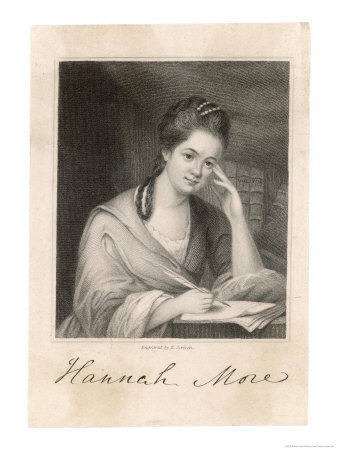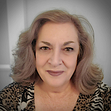Mirella Sichirollo Patzer's Blog, page 54
June 9, 2011
The House of Women by Anne Whitfield

The House of Women is a poignant portrayal of Victorian life as it was for women in 1870 Leeds, England. Trapped by the social restrictions and norms of the time, Grace Woodruff is forced to assume responsibility for her five sisters and a vast estate because of the failings of both her parents. With a harsh, tyrannical father who is on the verge of impoverishment because of risky investments, and a mother who is depressed by her husband's infidelities and coldness, Grace must assume duties far beyond what is expected of most women in the Victorian era.
The story enthrals the reader from its inception, keeping the pages turning as one seemingly insurmountable problem after another is forced upon Grace to resolve - each dilemma worse than the one previous. The members of Grace's family are colourfully depicted with both credible faults and good qualities. Their various troubles force Grace into taking actions that are not only morally upright, but that are difficult and challenge societal expectations of the time.
Beautifully written, the prose is fluid and invisible, allowing the reader to immerse themselves in the story's beauty. I rejoiced and sorrowed at the never-ending troubles plaguing the Woodruff's. More importantly, however, is the underlying theme that runs throughout the tale – to stand firm in the face of adversity and to conduct oneself with honour and integrity at all times. It is an accurate depiction of women's plights in an era not so long ago.
This family saga is a superb tale of an intensely strong heroine who stops at nothing to resolve issues that threaten the livelihood of her family within England's stringent class system. This is women's fiction at its most finest and a must read!
An interview with historical fiction author, Anne Whitfield
 Anne Whitfield
Anne Whitfield1. Welcome Anne. I'm so thrilled to have you visit us today. I'm very excited about your newest book. Can you tell us a little about your novel?
I loved the idea of a large family all pulling different ways. With a selfish mother, a tyrannical father and seven daughters, the family was complex, but add to that a lost love, a heroic butler and a handsome stranger, well, the real fun began then! The House of Women was a great book to write.
2. What inspired you to write a novel about a woman in this period of history?
I love the Victorian era. It was a time for immense change. Populations were growing rapidly and people were no longer content to stay in their own village. Of course, there were circumstances which forced many people to leave their homes and search for new lives, and this only highlights the way people adapted to new changes. The Victoria era gave women freedom to travel and explore and in many ways educated them beyond their role as mere mothers and wives. A fascinating time.
3. What hardships did women face in this particular century and what lessons can today's woman learn from it?
Well, the poor women were faced with many hardships from keeping their babies alive and healthy, while living in the slums of over-crowded cities. Struggling to keep a roof over their heads on low wages, etc. The wealthy women had it easier, of course, but they still faced the social boundaries of their class and sex. A lot married for the sake of family and wealth, and not for love.
I think modern women can be very grateful for the Victorian and Edwardian women who started calling for Women's Rights, which eventually gave us the freedom we have today. There was that, and then also the world wars, which again showed that women were capable of doing any job the men did.
4. What inspired you about your heroine? Why did you choose her?
She chose me really, like all my heroines do. I found Grace to such a complex person. She lives this half-existence, looking after her sisters and the family home, all jobs her mother and father should be doing and they don't. So she doesn't do much to make herself happy. Thenn suddenly her whole world is turned upside down and she struggles to make sense of it. She gets a little lost along the way, but such is her strength and courage that she soon see what she needs to be happy and fulfilled.
5. Can you describe a typical writing day?
I try to write between 9am and 3pm. After that it's dinner and family time. I work weekends, which leaves me free to write during the week. I prefer writing in the morning, and can count on one hand how many times I've written at night. But I do need coffee to keep me going and if possible chocolate!
6. Can you tell us briefly about your other novels and any new novels in the works?
Yes, I've just started writing my next historical. As yet it doesn't have a title, but the main characters, Charlotte and Harry, are there, demanding to be heard. It's set in Yorkshire England again, about 1874.
Aside from June release of The House of Women, I have an Australian historical, A Noble Place, being re-released next year. I also have plenty of finished books waiting to be published. Stay tuned!
For information about my published novels, readers can visit my website http://www.annewhitfield.com
Thank you.




































Published on June 09, 2011 05:23
The House of Women by Anne Whitfield

The House of Women is a poignant portrayal of Victorian life as it was for women in 1870 Leeds, England. Trapped by the social restrictions and norms of the time, Grace Woodruff is forced to assume responsibility for her five sisters and a vast estate because of the failings of both her parents. With a harsh, tyrannical father who is on the verge of impoverishment because of risky investments, and a mother who is depressed by her husband's infidelities and coldness, Grace must assume duties far beyond what is expected of most women in the Victorian era.
The story enthrals the reader from its inception, keeping the pages turning as one seemingly insurmountable problem after another is forced upon Grace to resolve - each dilemma worse than the one previous. The members of Grace's family are colourfully depicted with both credible faults and good qualities. Their various troubles force Grace into taking actions that are not only morally upright, but that are difficult and challenge societal expectations of the time.
Beautifully written, the prose is fluid and invisible, allowing the reader to immerse themselves in the story's beauty. I rejoiced and sorrowed at the never-ending troubles plaguing the Woodruff's. More importantly, however, is the underlying theme that runs throughout the tale – to stand firm in the face of adversity and to conduct oneself with honour and integrity at all times. It is an accurate depiction of women's plights in an era not so long ago.
This family saga is a superb tale of an intensely strong heroine who stops at nothing to resolve issues that threaten the livelihood of her family within England's stringent class system. This is women's fiction at its most finest and a must read!
An interview with historical fiction author, Anne Whitfield
 Anne Whitfield
Anne Whitfield1. Welcome Anne. I'm so thrilled to have you visit us today. I'm very excited about your newest book. Can you tell us a little about your novel?
I loved the idea of a large family all pulling different ways. With a selfish mother, a tyrannical father and seven daughters, the family was complex, but add to that a lost love, a heroic butler and a handsome stranger, well, the real fun began then! The House of Women was a great book to write.
2. What inspired you to write a novel about a woman in this period of history?
I love the Victorian era. It was a time for immense change. Populations were growing rapidly and people were no longer content to stay in their own village. Of course, there were circumstances which forced many people to leave their homes and search for new lives, and this only highlights the way people adapted to new changes. The Victoria era gave women freedom to travel and explore and in many ways educated them beyond their role as mere mothers and wives. A fascinating time.
3. What hardships did women face in this particular century and what lessons can today's woman learn from it?
Well, the poor women were faced with many hardships from keeping their babies alive and healthy, while living in the slums of over-crowded cities. Struggling to keep a roof over their heads on low wages, etc. The wealthy women had it easier, of course, but they still faced the social boundaries of their class and sex. A lot married for the sake of family and wealth, and not for love.
I think modern women can be very grateful for the Victorian and Edwardian women who started calling for Women's Rights, which eventually gave us the freedom we have today. There was that, and then also the world wars, which again showed that women were capable of doing any job the men did.
4. What inspired you about your heroine? Why did you choose her?
She chose me really, like all my heroines do. I found Grace to such a complex person. She lives this half-existence, looking after her sisters and the family home, all jobs her mother and father should be doing and they don't. So she doesn't do much to make herself happy. Thenn suddenly her whole world is turned upside down and she struggles to make sense of it. She gets a little lost along the way, but such is her strength and courage that she soon see what she needs to be happy and fulfilled.
5. Can you describe a typical writing day?
I try to write between 9am and 3pm. After that it's dinner and family time. I work weekends, which leaves me free to write during the week. I prefer writing in the morning, and can count on one hand how many times I've written at night. But I do need coffee to keep me going and if possible chocolate!
6. Can you tell us briefly about your other novels and any new novels in the works?
Yes, I've just started writing my next historical. As yet it doesn't have a title, but the main characters, Charlotte and Harry, are there, demanding to be heard. It's set in Yorkshire England again, about 1874.
Aside from June release of The House of Women, I have an Australian historical, A Noble Place, being re-released next year. I also have plenty of finished books waiting to be published. Stay tuned!
For information about my published novels, readers can visit my website http://www.annewhitfield.com
Thank you.









Published on June 09, 2011 05:23
June 7, 2011
The Lady's Slipper by Deborah Swift
 Back Cover Synopsis:
Back Cover Synopsis:"1660. King Charles II has returned from exile, but memories of the English Civil War still rankle. There are old scores to settle, and religious differences threaten to overturn a fragile peace. When Alice Ibbetson discovers a rare orchid, the Lady's Slipper, growing in a wood belonging to Richard Wheeler, she is captivated by its beauty— though Wheeler, a Quaker, is determined to keep the flower where God intended it to grow. Knowing that the orchid is the last of its kind, she steals the flower, little dreaming that her seemingly simple act will set off a chain of events that will lead to murder and exile, and change her life forever…"
Tragedy follows Alice Ibbetson. She grieves the death of her parents, but also the death of her beloved sister Flora. Add to that an unhappy marriage, and Alice seeks to escape her sadness by immersing herself in her art and her passion for nature.
On the property of Richard Wheeler, a Quaker, she discovers a rare Lady's Slipper orchid. She yearns to preserve and harvest its seeks in addition to painting it. One night, under the cloak of darkness, she steals the plant and hides it in the summerhouse of her home.
Her act brings a rash of misfortunes upon her – not only Wheeler's anger, but the desire of George Fisk, local overlord, who is desperate to use it to make a healing tincture for his skin ailment. Soon, all are put at risk.
The Lady's Slipper by Deborah Swift is Women's Fiction at its best. In this debut novel, the author has written an enchanting tale of historical fiction. The prose was lovely to read and the author's attention to detail made every page vivid. Plenty of introspection by the heroine endeared her to me. I was struck by this novel's creativity. To write an entire story around a simple, but rare, flower, and fill the tale with treacherous characters, impossible situations, and plenty of conflict, is quite a feat, and Deborah Swift pulls it off seamlessly.
Although the love relationship between Wheeler and Alice was slow to start, it did work very well at the end to provide a satisfying conclusion. What I enjoyed most about this novel was the clarity of the story and its vibrant descriptions that pulled me into the story and made me feel as if I were witnessing the scenery first hand. This is definitely a new author to watch and already, I'm awaiting her next novel, The Gilded Lilly.
I LOVE COMMENTS










Published on June 07, 2011 13:30
June 5, 2011
Trencarrow Secret by Anita Davison
 Trencarrow, the Hart family's country estate near Penzance in Cornwall contains two nemesis for twenty-year-old Isabel Hart. The lake where she nearly drowned four years before, and The Maze in the gardens of the elegant Queen Anne manor house.
Trencarrow, the Hart family's country estate near Penzance in Cornwall contains two nemesis for twenty-year-old Isabel Hart. The lake where she nearly drowned four years before, and The Maze in the gardens of the elegant Queen Anne manor house.It's the summer of 1882, and with her forthcoming engagement to her childhood sweetheart imminent, Isabel attempts to put at least one of her fears behind her. However, when she summons the courage to venture inside the maze, she sees something she didn't anticipate.
As other family secrets are revealed, Isabel is faced with the fact her vibrant, beautiful mother is desperately ill and her cousin, Laura, has developed a clandestine attraction to an enigmatic young man.
Isabel's growing doubts about her fiancé are exacerbated as she finds herself attracted to one of the houseguests, Viscount Strachan. Isabel discovers the lives around her are anything but ordinary and that her destiny lies in her own hands. Will she see her way through the maze her life has become, or will she be driven further into her own world?
Anita Davison has written a compelling Victorian Gothic Romance about dark family secrets and the true meaning of love and marriage. Our heroine is Isabel who bravely enters the maze on her family's summer manor house, where she was once lost as a child, and discovers her father locked in an embrace with her dying mother's companion. She is caught between two men, one whom she loves and the other whom she is expected to marry. And this sets Isabel off on a voyage of discovery about herself and her family.
Trencarrow Secret is a romantic family saga with complex characters whose motivations are revealed slowly, as are secret liaisons and love ties. What I enjoyed most was Anita Davison's descriptive prose and charming storytelling style as she slowly reveals long buried secrets, dark ambitions, and the love that exists between family members.
Isabel is a charismatic character with whom readers cannot help but like. She is a woman restricted by the strict Victorian values of the time. It pleased me to see that the author did not make her heroine feisty as is demanded by the romance genre, but rather, she made her authentic to the times, her behaviour keeping with the strict society she was subjected to. And that's what I look for most in any historical novel is the accuracy and authenticity rather than following the current trends for the publishing industry. I very much commend and respect the author for that.
With rich prose and compelling characters, Anita Davison weaves a magnificent Victorian era love story filled with intrigues. Each chapter is more tempting than the one before it. Fans of eloquent and meaningful romantic historical fiction will want to savour every word. Not only are the historical details well presented, but the love story that unfolds is exhilarating and stunning. A deep, enriching lesson on the nature of life and love.
For those of us who love a touch of mystery, an elegant setting in an old English manor house, and stories with satisfying endings that leave you surprised – this one has all that and more. Be prepared to be completely enthralled with his novel!
Want to learn more about this fascinating heroine? Here is an interview with Isabel Hart herself! What fun!

Isabel HartHeroineTrencarrow Secret
This is a beautiful estate, Isabel. How long have your family owned it?
Since my great grandfather's time, I believe. We live in London, but I love it here and look forward to coming down every summer, even with its bad memories.
What are those?
Well, for one, The Maze at the back of the house is somewhere I avoid. I don't like it much.
What is it about The Maze that frightens you, Isabel?
It isn't that bad, I don't have nightmares about it or anything. There's only one thing I have bad dreams about, and that's the awful night four years ago when I almost drowned in the lake. [Looks off and bites her lip] Anyway, we were talking about the Maze. My brother David told me there was a fairy house in the middle. So, on my sixth birthday I crept out of the house before everyone got up and went to find it.
I got lost, it's as simple as that. The hedges were a lot taller then of course, and I was only small. Then a cloud passed over the sun and what with the darkness and not finding my way back. . . [Shrugs] Everyone teases me about it. 'Silly Izzy' they call me, as if I was still six, but, yes, well, I admit I've not been there since - not until the other day when... [Bites her lip again frowning]
The other day when what?
When I saw Papa and Amelia well - you know. . .kissing. [Blushes] I couldn't believe it, but when I told David, he made me feel I was being childish and that I was old enough to know Papa and Mama weren't in love when they married. They married for convenience, he said.
That came as a shock to you?
Well, of course! I always believed we were a perfect family, Mama, Papa, my sister Melody, David and me. It never occurred to me Papa didn't love Mama. They were always, so - considerate, and kind to each other. [Sniffs and fumbles with a handkerchief] And now Mama is desperately ill and brought Amelia into the house because she needs constant nursing and Papa. . .
Has your father fallen in love with her?
Oh, no, I don't think it's a serious as that! [Frowns] Or perhaps it is, and Amelia is trying to tear Papa away from Mama when she is at her weakest. Because if Mama wasn't ill, she would send that trollop packing in a heartbeat and throw her boxes into the street after her. I could imagine her doing that as Mama is so strong and was once the most glamorous hostess in London. If she hadn't fallen so ill, then Amelia wouldn't even be here and Papa. . .
What about Melody and David, are they as upset as you are?
David isn't. [Rolls eyes] As I just said, he laughed and said I was being naive. I haven't told Melody, not yet anyway, and I wonder if I should. She adores Papa and it would upset her dreadfully. She has children to care for too, George is only five and William is still a baby. No, I mustn't spoil her summer. She comes down to Cornwall for a rest.
Rest? Doesn't she have a houseful of servants, a nursery maid and a lady's maid. Why does Melody need a rest?
[Cocks her head] I don't know what you mean. She has fewer servants than we do, so has more to do than Mama ever did. Walter, my brother-in-law is a dear and quite successful in business, but he isn't rich - at least Papa said his people weren't. He's quite a bit older than my sister, [stares off again thoughtfully] I always wondered why Melody married him. She's so beautiful - tiny, dark and dainty, and he's well, older, and clumsier and rather fond of his food - I...
Not a handsome prince then?
[Giggles] No, not at all. I was only thirteen when they married, and Melody was eighteen, so no one was going to discuss such an intimate subject with me. I wouldn't know how to approach it now, so I will probably never really understand. She doesn't seem unhappy though.
You have a cousin you are quite close to I believe?
[Face lights up] Laura, Yes, we were brought up together. She's a year older than I am and lives with her mother, my Aunt Margot, or rather Lady Radley. Laura's father died when she was two, so she's indulged in every way, but I adore her. We tell each other everything. [Fumbles with handkerchief again] At Least, we used to.
What do you mean?
Well, this summer, Laura told me she was in love with someone called Nicholas Tarrant. But it's all very mysterious. Although she insists Lady Radley knows all about him, Laura meets him in secret. She's very vague too about his family and what his prospects are. The strangest thing is, without any warning, this Nicholas turned up at Trencarrow and Laura didn't seem at all surprised to see him. Well, she tried to, throwing her hands in the air and saying, 'Well I never', and all that. But she forgets I know her very well.
So what is wrong with Nicholas Tarrant?
I'm not really sure. [Worries thumbnail with her teeth] And I don't mean to be unkind to Laura, because I love her dearly, but, well she isn't the prettiest of girls and tends to be a little plump with all the chocolates she eats. And Nicholas is extremely handsome and, well flashy and sly at the same time. Why would he be interested in a girl like Laura if she wasn't an heiress?
What about you? Do you have a young man?
[Flushes prettily] Well, I suppose I do really. I've known Jared Winters since we were children and everyone expects us to announce our engagement at my birthday ball. Jared is tall, has dark curly hair and is very handsome. All the girls I know admire him. I'm very lucky really.
Everyone? What about you? Are you happy to go along with your family's plans?
[Blinks] Me? I cannot say I've thought about it too much. Our families have always assumed we would marry one day and, well, I'll be twenty-one soon and that's late enough to be engaged, don't you think?
Tell me about yours latest house guest, Viscount Strachan?
Henry? [Flushes deeply] he asked me to call him that. He's very different from Jared, who calls me 'Old girl' all the time and pats me like a dog. Henry, I mean, Lord Strachan, talks to me about art and his two sisters who sound lovely. He understands that I don't like the water and doesn't make fun of me about it at all. He never says I ought to have got over such a silly fear by now either like Jared does.
He sounds more your kind of man than Jared.
Oh, I don't think so. [Twists handkerchief in her fingers] Henry is always squiring Evaline around. She's Jared's sister. She's tall with those pale, delicate looks everyone seems to think means she needs special care, though Evaline's never been ill a day in her life. [Lowers voice] She used to bully me at school, but I never mentioned it as no one would have believed such a thing of the perfect Evaline Winters. [Isabel rises] That's enough about her, shall I show you the gardens now?
Yes, that would be lovely. And thank you for talking to me, Isabel. Enjoy the rest of your summer in this beautiful estate.
I LOVE COMMENTS





































Published on June 05, 2011 05:42
Trencarrow Secret by Anita Davison
 Trencarrow, the Hart family's country estate near Penzance in Cornwall contains two nemesis for twenty-year-old Isabel Hart. The lake where she nearly drowned four years before, and The Maze in the gardens of the elegant Queen Anne manor house.
Trencarrow, the Hart family's country estate near Penzance in Cornwall contains two nemesis for twenty-year-old Isabel Hart. The lake where she nearly drowned four years before, and The Maze in the gardens of the elegant Queen Anne manor house.It's the summer of 1882, and with her forthcoming engagement to her childhood sweetheart imminent, Isabel attempts to put at least one of her fears behind her. However, when she summons the courage to venture inside the maze, she sees something she didn't anticipate.
As other family secrets are revealed, Isabel is faced with the fact her vibrant, beautiful mother is desperately ill and her cousin, Laura, has developed a clandestine attraction to an enigmatic young man.
Isabel's growing doubts about her fiancé are exacerbated as she finds herself attracted to one of the houseguests, Viscount Strachan. Isabel discovers the lives around her are anything but ordinary and that her destiny lies in her own hands. Will she see her way through the maze her life has become, or will she be driven further into her own world?
Anita Davison has written a compelling Victorian Gothic Romance about dark family secrets and the true meaning of love and marriage. Our heroine is Isabel who bravely enters the maze on her family's summer manor house, where she was once lost as a child, and discovers her father locked in an embrace with her dying mother's companion. She is caught between two men, one whom she loves and the other whom she is expected to marry. And this sets Isabel off on a voyage of discovery about herself and her family.
Trencarrow Secret is a romantic family saga with complex characters whose motivations are revealed slowly, as are secret liaisons and love ties. What I enjoyed most was Anita Davison's descriptive prose and charming storytelling style as she slowly reveals long buried secrets, dark ambitions, and the love that exists between family members.
Isabel is a charismatic character with whom readers cannot help but like. She is a woman restricted by the strict Victorian values of the time. It pleased me to see that the author did not make her heroine feisty as is demanded by the romance genre, but rather, she made her authentic to the times, her behaviour keeping with the strict society she was subjected to. And that's what I look for most in any historical novel is the accuracy and authenticity rather than following the current trends for the publishing industry. I very much commend and respect the author for that.
With rich prose and compelling characters, Anita Davison weaves a magnificent Victorian era love story filled with intrigues. Each chapter is more tempting than the one before it. Fans of eloquent and meaningful romantic historical fiction will want to savour every word. Not only are the historical details well presented, but the love story that unfolds is exhilarating and stunning. A deep, enriching lesson on the nature of life and love.
For those of us who love a touch of mystery, an elegant setting in an old English manor house, and stories with satisfying endings that leave you surprised – this one has all that and more. Be prepared to be completely enthralled with his novel!
Want to learn more about this fascinating heroine? Here is an interview with Isabel Hart herself! What fun!

Isabel HartHeroineTrencarrow Secret
This is a beautiful estate, Isabel. How long have your family owned it?
Since my great grandfather's time, I believe. We live in London, but I love it here and look forward to coming down every summer, even with its bad memories.
What are those?
Well, for one, The Maze at the back of the house is somewhere I avoid. I don't like it much.
What is it about The Maze that frightens you, Isabel?
It isn't that bad, I don't have nightmares about it or anything. There's only one thing I have bad dreams about, and that's the awful night four years ago when I almost drowned in the lake. [Looks off and bites her lip] Anyway, we were talking about the Maze. My brother David told me there was a fairy house in the middle. So, on my sixth birthday I crept out of the house before everyone got up and went to find it.
I got lost, it's as simple as that. The hedges were a lot taller then of course, and I was only small. Then a cloud passed over the sun and what with the darkness and not finding my way back. . . [Shrugs] Everyone teases me about it. 'Silly Izzy' they call me, as if I was still six, but, yes, well, I admit I've not been there since - not until the other day when... [Bites her lip again frowning]
The other day when what?
When I saw Papa and Amelia well - you know. . .kissing. [Blushes] I couldn't believe it, but when I told David, he made me feel I was being childish and that I was old enough to know Papa and Mama weren't in love when they married. They married for convenience, he said.
That came as a shock to you?
Well, of course! I always believed we were a perfect family, Mama, Papa, my sister Melody, David and me. It never occurred to me Papa didn't love Mama. They were always, so - considerate, and kind to each other. [Sniffs and fumbles with a handkerchief] And now Mama is desperately ill and brought Amelia into the house because she needs constant nursing and Papa. . .
Has your father fallen in love with her?
Oh, no, I don't think it's a serious as that! [Frowns] Or perhaps it is, and Amelia is trying to tear Papa away from Mama when she is at her weakest. Because if Mama wasn't ill, she would send that trollop packing in a heartbeat and throw her boxes into the street after her. I could imagine her doing that as Mama is so strong and was once the most glamorous hostess in London. If she hadn't fallen so ill, then Amelia wouldn't even be here and Papa. . .
What about Melody and David, are they as upset as you are?
David isn't. [Rolls eyes] As I just said, he laughed and said I was being naive. I haven't told Melody, not yet anyway, and I wonder if I should. She adores Papa and it would upset her dreadfully. She has children to care for too, George is only five and William is still a baby. No, I mustn't spoil her summer. She comes down to Cornwall for a rest.
Rest? Doesn't she have a houseful of servants, a nursery maid and a lady's maid. Why does Melody need a rest?
[Cocks her head] I don't know what you mean. She has fewer servants than we do, so has more to do than Mama ever did. Walter, my brother-in-law is a dear and quite successful in business, but he isn't rich - at least Papa said his people weren't. He's quite a bit older than my sister, [stares off again thoughtfully] I always wondered why Melody married him. She's so beautiful - tiny, dark and dainty, and he's well, older, and clumsier and rather fond of his food - I...
Not a handsome prince then?
[Giggles] No, not at all. I was only thirteen when they married, and Melody was eighteen, so no one was going to discuss such an intimate subject with me. I wouldn't know how to approach it now, so I will probably never really understand. She doesn't seem unhappy though.
You have a cousin you are quite close to I believe?
[Face lights up] Laura, Yes, we were brought up together. She's a year older than I am and lives with her mother, my Aunt Margot, or rather Lady Radley. Laura's father died when she was two, so she's indulged in every way, but I adore her. We tell each other everything. [Fumbles with handkerchief again] At Least, we used to.
What do you mean?
Well, this summer, Laura told me she was in love with someone called Nicholas Tarrant. But it's all very mysterious. Although she insists Lady Radley knows all about him, Laura meets him in secret. She's very vague too about his family and what his prospects are. The strangest thing is, without any warning, this Nicholas turned up at Trencarrow and Laura didn't seem at all surprised to see him. Well, she tried to, throwing her hands in the air and saying, 'Well I never', and all that. But she forgets I know her very well.
So what is wrong with Nicholas Tarrant?
I'm not really sure. [Worries thumbnail with her teeth] And I don't mean to be unkind to Laura, because I love her dearly, but, well she isn't the prettiest of girls and tends to be a little plump with all the chocolates she eats. And Nicholas is extremely handsome and, well flashy and sly at the same time. Why would he be interested in a girl like Laura if she wasn't an heiress?
What about you? Do you have a young man?
[Flushes prettily] Well, I suppose I do really. I've known Jared Winters since we were children and everyone expects us to announce our engagement at my birthday ball. Jared is tall, has dark curly hair and is very handsome. All the girls I know admire him. I'm very lucky really.
Everyone? What about you? Are you happy to go along with your family's plans?
[Blinks] Me? I cannot say I've thought about it too much. Our families have always assumed we would marry one day and, well, I'll be twenty-one soon and that's late enough to be engaged, don't you think?
Tell me about yours latest house guest, Viscount Strachan?
Henry? [Flushes deeply] he asked me to call him that. He's very different from Jared, who calls me 'Old girl' all the time and pats me like a dog. Henry, I mean, Lord Strachan, talks to me about art and his two sisters who sound lovely. He understands that I don't like the water and doesn't make fun of me about it at all. He never says I ought to have got over such a silly fear by now either like Jared does.
He sounds more your kind of man than Jared.
Oh, I don't think so. [Twists handkerchief in her fingers] Henry is always squiring Evaline around. She's Jared's sister. She's tall with those pale, delicate looks everyone seems to think means she needs special care, though Evaline's never been ill a day in her life. [Lowers voice] She used to bully me at school, but I never mentioned it as no one would have believed such a thing of the perfect Evaline Winters. [Isabel rises] That's enough about her, shall I show you the gardens now?
Yes, that would be lovely. And thank you for talking to me, Isabel. Enjoy the rest of your summer in this beautiful estate.
I LOVE COMMENTS










Published on June 05, 2011 05:42
June 3, 2011
Hannah More Quote
Published on June 03, 2011 07:29
May 31, 2011
The Lady and the Poet by Maeve Haran
 Ann More, fiery and spirited daughter of the Mores of Loseley House in Surrey, came to London destined for a life at the court of Queen Elizabeth and an advantageous marriage. There she encountered John Donne, the darkly attractive young poet who was secretary to her uncle, the Lord Keeper of the Great Seal. He was unlike any man she had ever met—angry, clever, witty and, in her eyes, insufferably arrogant and careless of women. Yet as they were thrown together Donne opened Ann's eyes to a new world of passion, and sensuality.
Ann More, fiery and spirited daughter of the Mores of Loseley House in Surrey, came to London destined for a life at the court of Queen Elizabeth and an advantageous marriage. There she encountered John Donne, the darkly attractive young poet who was secretary to her uncle, the Lord Keeper of the Great Seal. He was unlike any man she had ever met—angry, clever, witty and, in her eyes, insufferably arrogant and careless of women. Yet as they were thrown together Donne opened Ann's eyes to a new world of passion, and sensuality.But John Donne—Catholic by background in an age when it was deadly dangerous, tainted by an alluring hint of scandal—was the kind of man her status-conscious father distrusted and despised.
The Lady and the Poet tells the story of the forbidden love between one of our most admired poets and a girl who dared to rebel against the conventions of her time. They gave up everything to be together and their love knew no bounds.
My Review:
When the handsome John Donne was appointed chief secretary to Sir Thomas Egerton, Lord Keeper of the Great Seal, he was a well-educated man of the world, never dreaming that a young woman named Ann More, twelve years his junior, would become the great love of his life. But that's exactly what happened.
 John Donne
John Donne Ann More
Ann MoreNeither of them could deny their feelings for one another, and while Ann's father began to look for a suitable and noble husband for his daughter, she found herself irrevocably drawn to the dark and witty John Donne. When she was 17, Ann secretly married the very poor 29 year old Donne despite the fact he was a Catholic whose many family members were put to death for their faith, and she came from a staunch Church of England family.
When her father and uncle learned of the marriage they were furious and imprisoned Donne while they attempted to dispute the marriage as illegal. But Donne proved the marriage was indeed lawful and he was soon released from gaol. They lived a solitary life in the country in Pyrford, Surrey. They struggled financially as Donne worked as a lawyer while Sir Francis Wolly housed his wife and children.
 Donne House in Pyrford, Surrey
Donne House in Pyrford, SurreyI thoroughly enjoyed this story of forbidden love. Written in first person narrative, the reader is given insight into the thoughts and emotions of a 17 year old Ann More as she struggles against societal restrictions to pursue the path of her heart. She gave up her wealth, her status, and every comfort in order to be with him. She bore him twelve children in 15 years, but died giving birth to the last one.
Maeve Haran has produced a well-researched, historically accurate description of life during the reign of Queen Elizabeth. Although the story is not a gripping one, it does engage the reader through it's lovely prose and poignant story line. It is a fabulous way to learn more about not only the historical era, but as an insight into the fascinating lives of the great poet and his unique wife who would risk all for love.
I LOVE COMMENTS





































Published on May 31, 2011 08:23
The Lady and the Poet by Maeve Haran
 Ann More, fiery and spirited daughter of the Mores of Loseley House in Surrey, came to London destined for a life at the court of Queen Elizabeth and an advantageous marriage. There she encountered John Donne, the darkly attractive young poet who was secretary to her uncle, the Lord Keeper of the Great Seal. He was unlike any man she had ever met—angry, clever, witty and, in her eyes, insufferably arrogant and careless of women. Yet as they were thrown together Donne opened Ann's eyes to a new world of passion, and sensuality.
Ann More, fiery and spirited daughter of the Mores of Loseley House in Surrey, came to London destined for a life at the court of Queen Elizabeth and an advantageous marriage. There she encountered John Donne, the darkly attractive young poet who was secretary to her uncle, the Lord Keeper of the Great Seal. He was unlike any man she had ever met—angry, clever, witty and, in her eyes, insufferably arrogant and careless of women. Yet as they were thrown together Donne opened Ann's eyes to a new world of passion, and sensuality.But John Donne—Catholic by background in an age when it was deadly dangerous, tainted by an alluring hint of scandal—was the kind of man her status-conscious father distrusted and despised.
The Lady and the Poet tells the story of the forbidden love between one of our most admired poets and a girl who dared to rebel against the conventions of her time. They gave up everything to be together and their love knew no bounds.
My Review:
When the handsome John Donne was appointed chief secretary to Sir Thomas Egerton, Lord Keeper of the Great Seal, he was a well-educated man of the world, never dreaming that a young woman named Ann More, twelve years his junior, would become the great love of his life. But that's exactly what happened.
 John Donne
John Donne Ann More
Ann MoreNeither of them could deny their feelings for one another, and while Ann's father began to look for a suitable and noble husband for his daughter, she found herself irrevocably drawn to the dark and witty John Donne. When she was 17, Ann secretly married the very poor 29 year old Donne despite the fact he was a Catholic whose many family members were put to death for their faith, and she came from a staunch Church of England family.
When her father and uncle learned of the marriage they were furious and imprisoned Donne while they attempted to dispute the marriage as illegal. But Donne proved the marriage was indeed lawful and he was soon released from gaol. They lived a solitary life in the country in Pyrford, Surrey. They struggled financially as Donne worked as a lawyer while Sir Francis Wolly housed his wife and children.
 Donne House in Pyrford, Surrey
Donne House in Pyrford, SurreyI thoroughly enjoyed this story of forbidden love. Written in first person narrative, the reader is given insight into the thoughts and emotions of a 17 year old Ann More as she struggles against societal restrictions to pursue the path of her heart. She gave up her wealth, her status, and every comfort in order to be with him. She bore him twelve children in 15 years, but died giving birth to the last one.
Maeve Haran has produced a well-researched, historically accurate description of life during the reign of Queen Elizabeth. Although the story is not a gripping one, it does engage the reader through it's lovely prose and poignant story line. It is a fabulous way to learn more about not only the historical era, but as an insight into the fascinating lives of the great poet and his unique wife who would risk all for love.
I LOVE COMMENTS










Published on May 31, 2011 08:23
May 27, 2011
Zelda Fitzgerald
 Zelda FitzgeraldThe Woman behind the Artist(1900 - 1948)AuthorDancerNow on virtually all high school reading lists, F. Scott Fitzgerald's novels, especially The Great Gatsby, were initially commercial failures. Although we now consider Fitzgerald one of America's greatest writers, he died young, penniless, and forgotten, until scholarly research revived his writing and reputation almost half a century later. But, what most don't know is that his wife, Zelda Fitzgerald, was also a writer--or at least an aspiring one.
Zelda FitzgeraldThe Woman behind the Artist(1900 - 1948)AuthorDancerNow on virtually all high school reading lists, F. Scott Fitzgerald's novels, especially The Great Gatsby, were initially commercial failures. Although we now consider Fitzgerald one of America's greatest writers, he died young, penniless, and forgotten, until scholarly research revived his writing and reputation almost half a century later. But, what most don't know is that his wife, Zelda Fitzgerald, was also a writer--or at least an aspiring one.
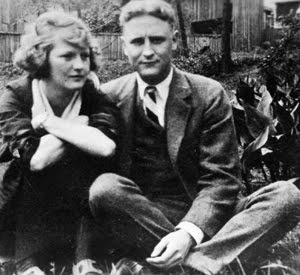 Zelda and F. Scott Fitzgerald
Zelda and F. Scott FitzgeraldZelda Sayre Fitzgerald began writing her first book while being treated for schizophrenia at the Phipps Clinic of John Hopkins Hospital in Baltimore. Zelda finished writing her almost entirely autobiographical novel, Save Me the Waltz, in a two-month manic frenzy. She sent her manuscript to the renowned literary editor Maxwell Perkins.
Scott read the book after Zelda sent it out, and he was furious. He had been working for years on what would become Tender is the Night, and he felt that Zelda "plagiarized" the material he was using for his own book, which was also based on the couple's life together. Scott insisted the book would not sell, calling Zelda a "third-rate writer." Nonetheless, Perkins agreed to publish her book, although it was, as Scott predicted, received poorly. Save Me the Waltz was later reprinted in 2001.
In Dear Scott, Dearest Zelda, their marriage is documented in a series of love letters. Zelda was an unstable, gregarious socialite, and Scott was jealous, obsessive, and domineering. Still, the letters demonstrate an astoundingly deep affection for one another. Shortly before their marriage, in a letter to a friend, Fitzgerald calmed fears that the marriage might not work: "I fell in love with [Zelda's] courage, sincerity, and her flaming self-respect, and it's these things I'd believe in even if the whole world indulged in wild suspicions that she wasn't all that she should be. But of course the real reason…is that I love her and that's the beginning and end of everything."

As Fitzgerald turned to the bottle more and more, Zelda's behavior grew increasingly erratic. After Save Me the Last Waltz was published, she spent the rest of her adult life in and out of mental hospitals. Although she never published work after her first failed novel, she dabbled in both art and ballet. Her interest in ballet was especially troubling, as she practiced to exhaustion, putting in eight hours of work every day.
When Scott died in Hollywood from a heart attack at 44, Zelda, staying at a hospital in North Carolina at the time, was unable to attend the funeral. Zelda died in a fire at the same hospital eight years later. We emember Zelda, whom her husband proclaimed "the first American flapper," for her tumultuous love affair with one of America's greatest artists. Yet she should still be understood as a fascinating figure in her own right, a woman who defined an era.
This guest post is contributed by Pamelia Brown, who writes for the site associate degree . She welcomes your comments at her email Id: pamelia.brown@gmail.com. I LOVE COMMENTS





































Published on May 27, 2011 11:39
Zelda Fitzgerald
 Zelda FitzgeraldThe Woman behind the Artist(1900 - 1948)AuthorDancerNow on virtually all high school reading lists, F. Scott Fitzgerald's novels, especially The Great Gatsby, were initially commercial failures. Although we now consider Fitzgerald one of America's greatest writers, he died young, penniless, and forgotten, until scholarly research revived his writing and reputation almost half a century later. But, what most don't know is that his wife, Zelda Fitzgerald, was also a writer--or at least an aspiring one.
Zelda FitzgeraldThe Woman behind the Artist(1900 - 1948)AuthorDancerNow on virtually all high school reading lists, F. Scott Fitzgerald's novels, especially The Great Gatsby, were initially commercial failures. Although we now consider Fitzgerald one of America's greatest writers, he died young, penniless, and forgotten, until scholarly research revived his writing and reputation almost half a century later. But, what most don't know is that his wife, Zelda Fitzgerald, was also a writer--or at least an aspiring one.
 Zelda and F. Scott Fitzgerald
Zelda and F. Scott FitzgeraldZelda Sayre Fitzgerald began writing her first book while being treated for schizophrenia at the Phipps Clinic of John Hopkins Hospital in Baltimore. Zelda finished writing her almost entirely autobiographical novel, Save Me the Waltz, in a two-month manic frenzy. She sent her manuscript to the renowned literary editor Maxwell Perkins.
Scott read the book after Zelda sent it out, and he was furious. He had been working for years on what would become Tender is the Night, and he felt that Zelda "plagiarized" the material he was using for his own book, which was also based on the couple's life together. Scott insisted the book would not sell, calling Zelda a "third-rate writer." Nonetheless, Perkins agreed to publish her book, although it was, as Scott predicted, received poorly. Save Me the Waltz was later reprinted in 2001.
In Dear Scott, Dearest Zelda, their marriage is documented in a series of love letters. Zelda was an unstable, gregarious socialite, and Scott was jealous, obsessive, and domineering. Still, the letters demonstrate an astoundingly deep affection for one another. Shortly before their marriage, in a letter to a friend, Fitzgerald calmed fears that the marriage might not work: "I fell in love with [Zelda's] courage, sincerity, and her flaming self-respect, and it's these things I'd believe in even if the whole world indulged in wild suspicions that she wasn't all that she should be. But of course the real reason…is that I love her and that's the beginning and end of everything."

As Fitzgerald turned to the bottle more and more, Zelda's behavior grew increasingly erratic. After Save Me the Last Waltz was published, she spent the rest of her adult life in and out of mental hospitals. Although she never published work after her first failed novel, she dabbled in both art and ballet. Her interest in ballet was especially troubling, as she practiced to exhaustion, putting in eight hours of work every day.
When Scott died in Hollywood from a heart attack at 44, Zelda, staying at a hospital in North Carolina at the time, was unable to attend the funeral. Zelda died in a fire at the same hospital eight years later. We emember Zelda, whom her husband proclaimed "the first American flapper," for her tumultuous love affair with one of America's greatest artists. Yet she should still be understood as a fascinating figure in her own right, a woman who defined an era.
This guest post is contributed by Pamelia Brown, who writes for the site associate degree . She welcomes your comments at her email Id: pamelia.brown@gmail.com. I LOVE COMMENTS










Published on May 27, 2011 11:39

